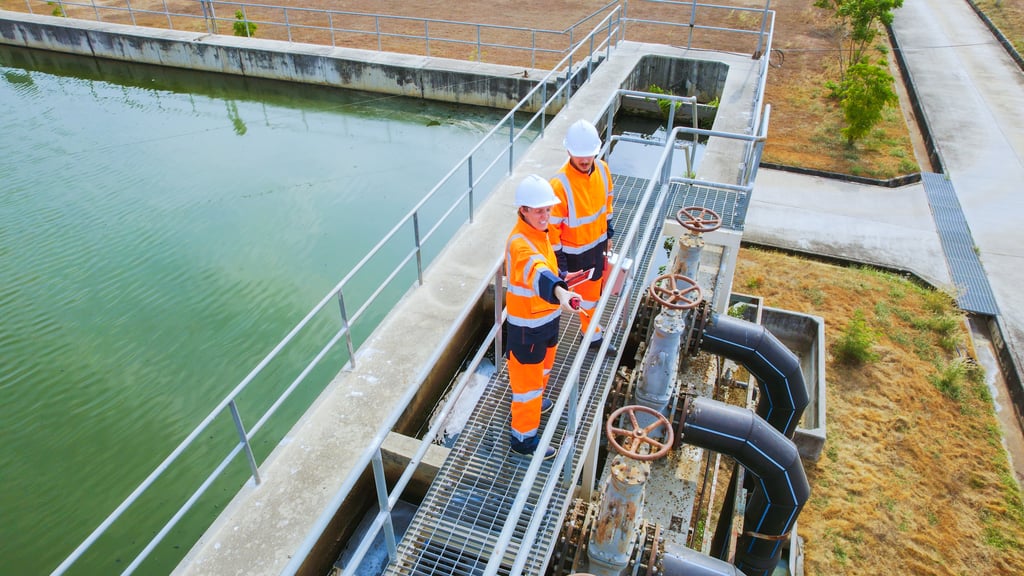Greenhouse gas (GHG) reporting has become a critical requirement for organizations aiming to meet regulatory obligations and stakeholder expectations. However, many businesses encounter challenges that can undermine accuracy and credibility.
Jimena Klauer, LRQA’s Strategic Account Manager and GHG expert, shares insights into common pitfalls in GHG reporting and strategies to overcome them.
Overlooking scope 3 emissions
A significant oversight for many organizations is neglecting scope 3 emissions, which can account for up to 85% of a company's total emissions. These indirect emissions arise from activities across the value chain, including suppliers and product use. "Ignoring scope 3 emissions leaves organizations with an incomplete picture of their environmental impact," says Jimena. "Engaging with the value chain and implementing robust data collection methods are essential steps towards comprehensive reporting."
Using inconsistent or outdated methodologies
Accurate reporting depends on consistent, standardized methodologies, such as those outlined by the Greenhouse Gas Protocol. Some organisations, however, rely on outdated processes or fail to adapt to evolving standards, leading to errors and inconsistencies. The Greenhouse Gas Protocol provides the underlying principles and methods to develop a GHG emissions inventory suitable for various reporting purposes. "Adhering to recognised frameworks ensures compliance and enhances the credibility of reported data," Jimena explains. "Organisations must stay updated with the latest guidelines to maintain accuracy."
Underestimating the importance of data quality
Incomplete or inaccurate data can result from poor internal communication, lack of training or insufficient resources. Such errors undermine the credibility of a company's reporting and its ability to make informed decisions. "Investing in tools, training and third-party verification is crucial for ensuring data integrity," says Jimena. "Reliable data forms the foundation of effective reporting and decision-making."
Treating GHG reporting as a compliance exercise
Focusing solely on meeting regulatory requirements prevents organizations from realizing the strategic benefits of GHG reporting. Carbon reporting is not just about compliance; it is a tool for identifying inefficiencies, reducing costs and gaining a competitive edge. "Viewing GHG reporting as a strategic opportunity enables organizations to innovate and improve operations," Jimena notes. "It positions them as leaders in sustainability."
Failing to meet stakeholder expectations
Stakeholders, including investors, customers and regulators, increasingly demand transparency and accountability. Organizations that fail to communicate their efforts clearly risk losing trust and falling behind in their industries. “Stakeholders expect organisations to not only report emissions accurately but also demonstrate a commitment to reducing them over time. Transparent and credible reporting builds confidence," Jimena explains. "Organisations must communicate their progress and commitment to sustainability effectively."
Where is the best place to start?
Starting your GHG reporting journey can feel daunting, but taking the right initial steps can set you on the path to success. “The best place to start is by identifying your biggest emissions sources—often Scope 1 and Scope 2 emissions—and ensuring your data collection process is accurate and consistent,” says Jimena. Organisations should begin by:
- Mapping out their operations to identify direct (Scope 1) and energy-related (Scope 2) emissions.
- Engaging key internal teams, such as facilities management and procurement, to gather relevant data.
- Selecting a recognized reporting framework, such as the Greenhouse Gas Protocol, to standardize their approach.
“Once you have a solid foundation in place for Scope 1 and Scope 2, you can expand to include Scope 3 emissions, which often require supplier engagement and deeper collaboration across your value chain,” Jimena advises. “Starting small but systematically is key to ensuring accurate and reliable reporting.”
Avoiding common mistakes in GHG reporting is essential for organizations aiming to meet their climate goals and strengthen their reputation. By prioritising accurate data, adopting robust methodologies and engaging with stakeholders, companies can turn reporting challenges into opportunities for growth. With LRQA’s expert support, businesses can build confidence in their reporting and position themselves as leaders in the transition to a sustainable, low-carbon future.
Find out more about how LRQA can support your journey:








